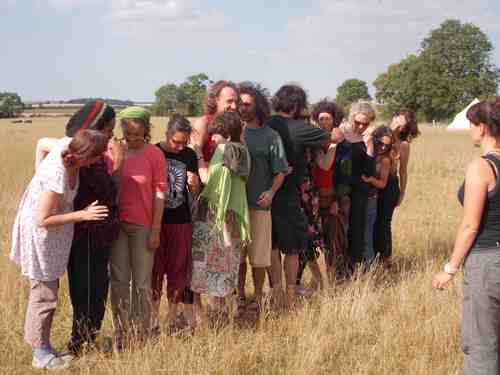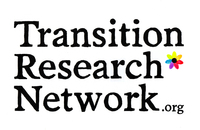Research Marketplace

An online facility for researchers and Transition groups to advertise their research interests and begin conversations that might lead to collaboration.
+context
Outside the conversations that take place within existing collaborations, ad hoc relationships, and academic-practitioner networks, it is not easy for researchers and Transition groups to become aware of each other's research needs and interests. Research opportunities are often time-limited, determined by the durations of grants or the timing of student dissertations and coursework projects. This creates pressure to set up partnerships that may not conform to appropriate time scales. It might not be obvious to Transition groups how to translate their interests into research projects to which researchers can make meaningful contributions, or with whom they might collaborate on this.
+problem
It can be difficult for Transition groups with research interests to connect with researchers who might be able to work with them, and for researchers to identify Transition groups with whom they might collaborate. These interests and needs are rarely made visible, and conversations to explore possibilities for collaboration not easily maintained.
+background
The concept of a research marketplace was first suggested at a meeting of an Interest Group on Researching Transition at the Transition Network conference in Liverpool in 2011. Later the Transition Research Network was able to develop and pilot the idea thanks to a small grant awarded by the Energy Security in a Multipolar World Research Cluster following the joint Energising and Empowering Communities workshop in Kingston in October 2012.
Needs assessment was based on the recognition that many Transition groups and projects, especially the largest and best-established, have substantial needs for research and information-gathering but lack the time and resources to act upon these, and so rarely act upon them. Dissertation students wishing to work on Transition, and researchers with funded projects or writing grant funding applications, often search for groups to work with without any clear idea of where their work can be most useful. Transition Initiatives, Transition Network and more recently the Transition Research Network, are used to fielding such enquiries - often a time-consuming process that more commonly leads to frustration than connecting a researcher with the right Transition group or project for them.
The research marketplace was set up as a tool to reduce the workload involved in this intermediation and make it more effective. Transition groups wanting to take part in research or get particular research projects done can let this be known to the research community. Researchers and dissertation students can both browse these requests and advertise their own offers of research collaborations. The list of research offers can, in turn, help Transition groups get a better idea of what they can realistically expect from academic research projects. Integration with this website allows conversations that start up in the marketplace to continue online, and use the patterns here as a source of ideas that can be the basis of an agreement to collaborate.
In this way, the marketplace extends what permaculturalists refer to as the edge between the Transition Research Network and broader communities of transitioners and interested researchers. Many people in both groups lack the time or motivation for hands-on or ongoing involvement in the network or to attend meetings, but might nonetheless have a specific interest in starting particular projects. This allows them to engage in the network selectively, in a way that allows them to focus directly on these interests.
+solution
Make your research ideas, offers and invitations available on the research marketplace and start conversations with the potential collaborators it brings you into contact with. The patterns are available to help guide your discussion towards a collaboration that suits everyone's interests - or a recognition that insufficient common ground exists for this to happen.
The research marketplace is a tool for working across boundaries and extending the edges of academic-practitioner networks. It allows an initial needs assessment, supports practitioner-led research, and helps to direct research effort where it's needed. It can help with setting clear expectations, and in conjunction with the patterns lead into designing research together, and be the basis of a memorandum of understanding. It makes it more likely that research interest and the effort that goes into developing research capacity is not wasted. Making research interests and offers visible, along with the conversations they inspire, contributes to general understanding of how such collaborations develop, or fail to develop - a form of collective active learning that contributes to the open source knowledge commons.
